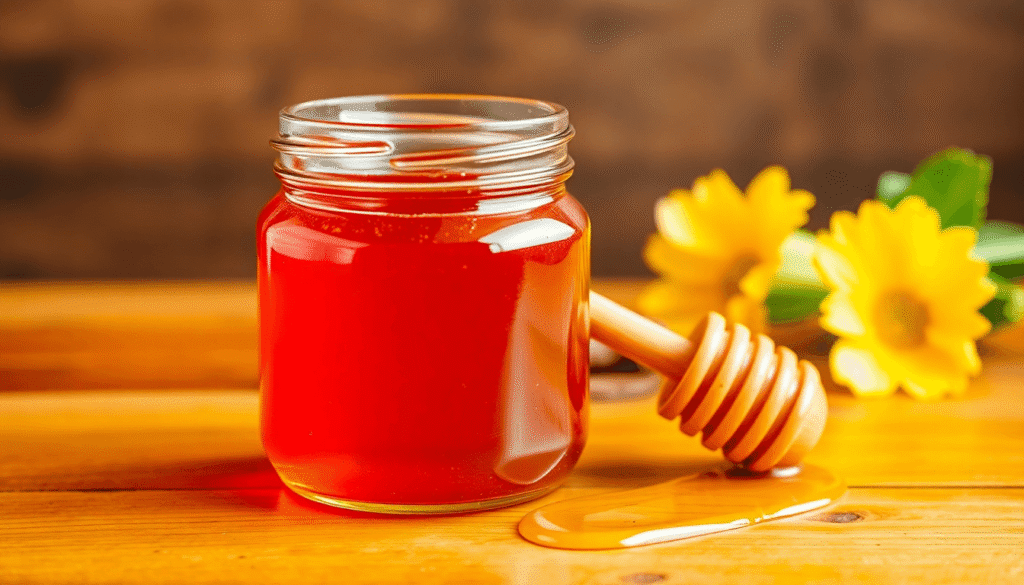Discover the world of infused and specialty honey. Learn how unique flavors, health benefits, and gourmet uses are revolutionizing honey as a superfood for wellness and culinary delight.
Overview
Honey has always been cherished as one of nature’s purest gifts, valued for its sweetness, medicinal properties, and cultural significance. But in today’s world, honey is no longer limited to the golden liquid extracted straight from the hive. Enter infused and specialty honey—a rising trend that combines tradition with innovation, turning ordinary honey into a gourmet superfood.
This comprehensive guide explores what infused and specialty honey is, how it’s made, its health benefits, popular varieties, and why it’s becoming a favorite in both kitchens and wellness routines.

What is Infused Honey?
Infused honey is created by combining raw honey with herbs, spices, fruits, or botanicals to enhance its flavor and therapeutic qualities. Unlike flavored syrups or artificial sweeteners, infusion is a natural process where ingredients are steeped in honey, allowing the flavors and beneficial compounds to blend over time.
Common infusion methods include:
- Cold infusion (slow steeping over several weeks)
- Warm infusion (gentle heating to speed up the process)
- Direct addition of natural extracts or powders
Specialty Honey: A World Beyond Clover and Wildflower
Specialty honey refers to honey sourced from unique nectar plants or produced under specific conditions that give it distinctive flavors, aromas, and health benefits. Examples include:
- Manuka Honey (New Zealand): Known for strong antibacterial properties
- Sidr Honey (Middle East): Rare, with a rich, buttery taste and medicinal uses
- Acacia Honey (Europe): Light, slow-crystallizing, ideal for delicate palates
- Buckwheat Honey (USA/Europe): Dark, robust, packed with antioxidants
These specialty honeys stand out not only for their taste but also for their nutritional profiles.
Health Benefits of Infused & Specialty Honey
Both infused and specialty honeys offer an impressive range of benefits:
- Boosts Immunity: Raw honey contains enzymes, antioxidants, and antibacterial agents. Infusions (like ginger or turmeric) add an extra layer of immune support.
- Soothes Digestion: Infused chamomile or mint honey can ease bloating and support gut health.
- Relieves Cold & Flu Symptoms: Honey infused with lemon or cinnamon provides natural relief.
- Supports Skin Health: Specialty honeys like Manuka are widely used in skincare for their healing and hydrating properties.
- Energy & Nutrition: Natural sugars provide quick energy, while infused herbs add vitamins and minerals.
Popular Infused Honey Varieties
- Cinnamon Honey – boosts circulation and supports metabolism
- Ginger Honey – fights inflammation and soothes sore throats
- Garlic Honey – combines antimicrobial power with natural sweetness
- Lavender Honey – calming and perfect for relaxation
- Turmeric Honey (Golden Honey) – powerful anti-inflammatory blend
- Citrus Honey (Lemon/Orange Peel) – refreshing and immune-boosting
Culinary Uses of Infused & Specialty Honey
- Tea & Beverages: Sweetens herbal teas, smoothies, or cocktails
- Cooking & Baking: Enhances marinades, salad dressings, bread, and desserts
- Cheese Pairing: Specialty honeys pair wonderfully with artisanal cheeses
- Breakfast Boost: Perfect on pancakes, waffles, granola, or yogurt
- Natural Remedies: Mixed in warm water or herbal teas for soothing relief
The Market Potential of Infused & Specialty Honey
With growing consumer demand for functional foods and natural sweeteners, infused and specialty honeys are becoming profitable niches in the beekeeping industry. Artisanal honey products fetch premium prices, making them attractive to both small-scale and commercial beekeepers.
Key drivers of this trend:
- Rising interest in superfoods
- Growth of the wellness and natural remedies market
- Demand for gourmet and artisanal products
- Increasing awareness of sustainable beekeeping practices
How to Make Infused Honey at Home
- Select high-quality raw honey
- Add your chosen herbs, spices, or fruit peels
- Seal in a glass jar and let steep for 1–2 weeks (shake daily)
- Strain out solids (if desired) and store in a cool, dark place
Tip: Always use dried herbs or fruit peels to avoid introducing moisture, which may cause fermentation.
Conclusion
Infused and specialty honey are reshaping how we experience one of nature’s oldest sweeteners. By blending raw honey with powerful botanicals or sourcing honey from unique floral origins, these variations not only elevate culinary experiences but also provide enhanced health benefits.
Whether you’re a beekeeper, a health enthusiast, or a foodie looking to explore new flavors, infused and specialty honey prove that nature’s sweetest superfood still has room to surprise us.
FAQs on Infused & Specialty Honey
- What’s the difference between infused honey and flavored honey?
Infused honey uses natural herbs, spices, or fruits, while flavored honey may use artificial additives. - Is infused honey safe for children?
Yes, but like all honey, it should not be given to children under 1 year old. - Can infused honey spoil?
Honey doesn’t spoil, but improper infusion with fresh fruit can introduce moisture and cause fermentation. - How long does infused honey last?
When stored properly, infused honey can last for 1–2 years. - What is the healthiest specialty honey?
Manuka honey is often considered the most medicinal, but all raw specialty honeys carry unique benefits. - Can I heat infused honey?
Gentle heating is fine, but avoid high temperatures to preserve enzymes and nutrients. - Which infused honey is best for colds?
Ginger, turmeric, and lemon-infused honeys are popular for relieving cold symptoms. - Are specialty honeys worth the higher price?
Yes, because they are rare, packed with nutrients, and often harvested in limited quantities. - Can diabetics consume infused honey?
In moderation, yes. However, individuals with diabetes should consult their doctor before regular use. - How can I start selling infused honey?
Begin with small batches, follow food safety standards, create unique blends, and market them through local farmers’ markets or online stores.